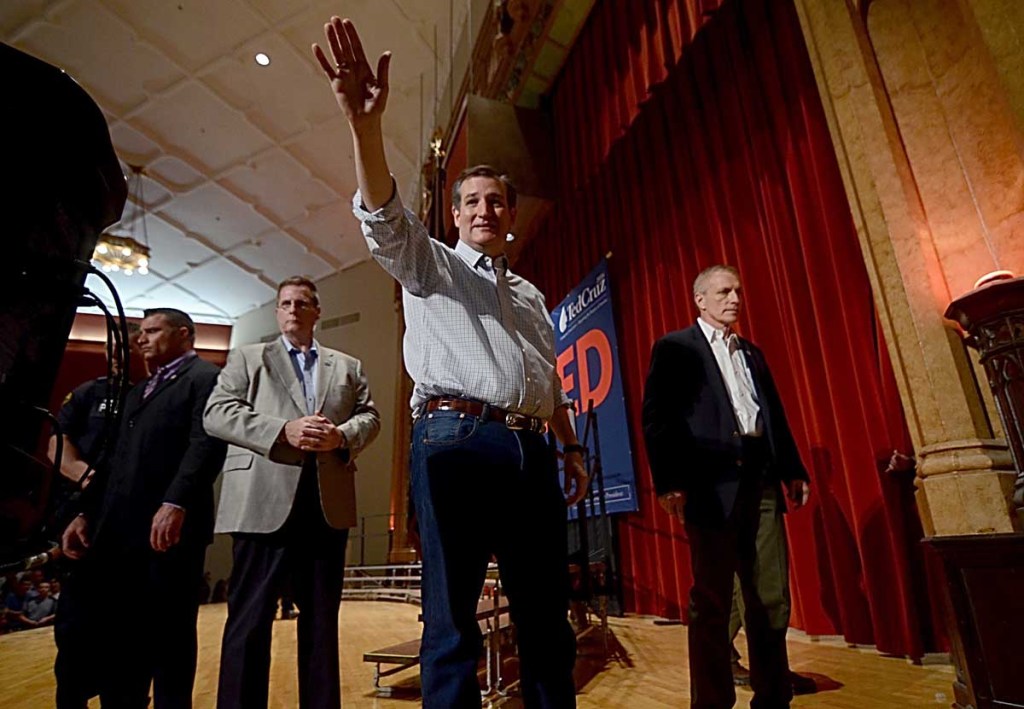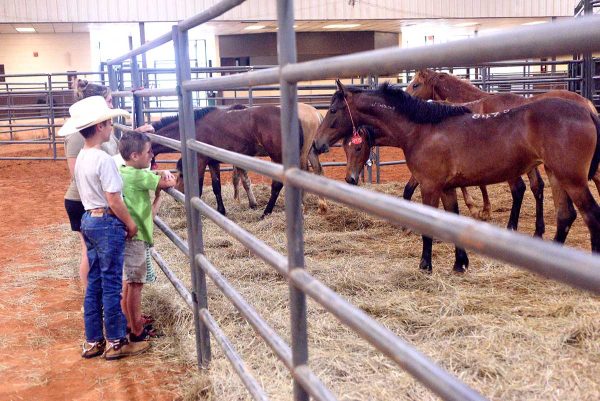Future murky for Ted Cruz as he settles back into Texas
Published 9:15 am Wednesday, July 27, 2016

- Presidential candidate Ted Cruz waves to his supporters and those in attendance of his speech on Sunday at Woodrow Wilson Middle School in Terre Haute, Indiana.
AUSTIN — Sen. Ted Cruz isn’t this year’s GOP presidential nominee, but there could be a race yet between him and Democrat Hillary Clinton.
Depending on what happens with GOP nominee Donald Trump and Clinton in November, Texas’ junior senator could mount a comeback four years down the road.
Mark Jones, political science professor at Rice University, said it will depend on how badly Trump does against Clinton. The worse things go for the New York real estate developer, the better the chances for Cruz.
But some observers say things aren’t so simple for Cruz. The way back to a viable run at the nomination means he first must dig out of a hole with fellow Republicans.
Cruz, who held office as the state’s solicitor general before winning election to U.S. Senate in 2012, needs to first hang onto his current seat.
And Trump has vowed to stand in the way, as payback to the furry caused by Cruz at last week’s Republican convention.
Cruz elicited boos and jeers from convention delegates when, during a speech, he did not explicitly endorse Trump. His former opponent later vowed to put $10 million or more into a political committee to defeat him.
Jones said Trump’s threat “needs to be taken with a grain of salt,” adding that trying to unseat the incumbent freshman would be “political suicide” in Texas. Cruz easily won the Texas primary over Trump.
But Cruz’s support dropped significantly after last week’s convention, noted Steve Munisteri, a former state Republican Party chairman. A recent poll by CNN/ORC poll shows Cruz’s post-convention image among Republicans plummeted by 50 percent.
There’s no guarantee that Cruz wins reelection in two years, said Munisteri, who is senior adviser to the Republican National Committee Chairman Reince Priebus
“I don’t think you can take that for granted,” he said. “My guess is he would be a favorite to win a Republican primary (for Senate), but it’s not the lock it was a week ago.”
After all, 25 Republican members of Congress from Texas each could potentially oppose him.
“I’ve yet to meet a congressman that looks in the mirror and doesn’t see a senator,” Munisteri said.
David White, a political consultant who has worked with Republicans for 10 years, downplayed Cruz’s vulnerability.
He captured almost 44 percent of the vote in the Texas presidential primary, to Trump’s 27 percent.
“The base in Texas sees him as someone who stands on principle,” White said.
But Carl Tepper, immediate past president of the Texas Republican County Chairmen’s Association, said Cruz’s “character flaws” are emerging.
“Ted Cruz is terribly vulnerable right now,” said Tepper, an early Trump backer. “His Senate seat is vulnerable.”
Tepper said Cruz seems to be “on a pedestal” and doesn’t visit Lubbock County often.
“We haven’t seen him for three or four years,” he said. “I find that kind of insulting, that the U.S. Senator will not talk to his constituents. He’s been running for president since he got elected.”
And failing to get behind Trump last week could continue to be an problem, said Brandon Rottinghaus, political science professor at University of Houston.
“His act of self-immolation gave pause to many committed Republicans about Sen. Cruz’s commitment to the Republican party,” said Rottinghaus. “What many said was that Sen. Cruz put himself above the party.”
Recapturing enough support for a healthy campaign will depend on “making amends” with key Republicans, said Rottinghaus.
“It’s hard to maintain the enthusiasm you need for four years, especially after being beaten,” he said. “It almost never works out that the also-ran ends up winning the nomination and the presidency.
But should Trump lose to Clinton this November, Rottinghaus said, the next election is just around the corner.
For now, he said, Cruz must get to work as a senator, even if it means giving away some of his claim to being a Washington outsider.
“He needs to stick to the basics,” he said. “He needs to make a name for himself as a senator — build a name for himself that’s not just about obstruction.”
John Austin covers the Texas Statehouse for CNHI’s newspapers and websites. Reach him at jaustin@cnhi.com.


